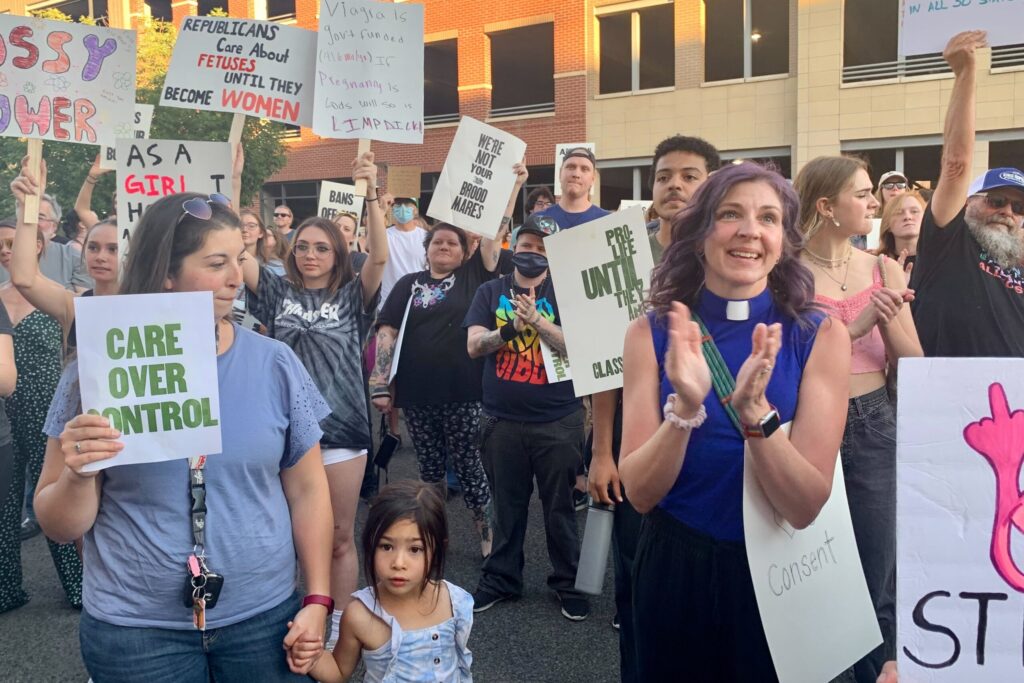On Friday, a crowd of more than 100 people gathered in downtown Grand Junction. Some held handmade signs, others wore face paint; there was more than one reference to wire hangers. They had come to protest the Supreme Court’s abortion ruling.
Though Colorado allows abortion, the procedure is now illegal in many of the states surrounding it. And that is changing the landscape of abortion access inside the state.
Jeriel Clark was one of the event’s speakers. A mom to two teenage daughters, Clark worries that the new patchwork of laws across the country will restrict where her kids feel comfortable moving when they’re older. She attended the protest to hand out information about abortion care in Colorado.
“Today, we’re going to be sharing some information about where you can find the closest abortions near you,” she said. “But it is really going to take someone who has the means and technology available to access that information to be able to make it to those locations.”
Even before the Supreme Court decision, getting access to an abortion was difficult for many people, including for those who live on the Western Slope. Like many communities here, Grand Junction does not have an abortion clinic. The closest is 90 miles away in Glenwood Springs.
 Stina Sieg/CPR News
Stina Sieg/CPR NewsClark worried that people coming from Utah won’t be able to find their way to the handful of clinics that perform abortions in western Colorado, including in Cortez and Durango.
Abortion became illegal in Utah with the reversal of Roe v. Wade on Friday, though a judge temporarily blocked the state’s “trigger ban” on Monday.